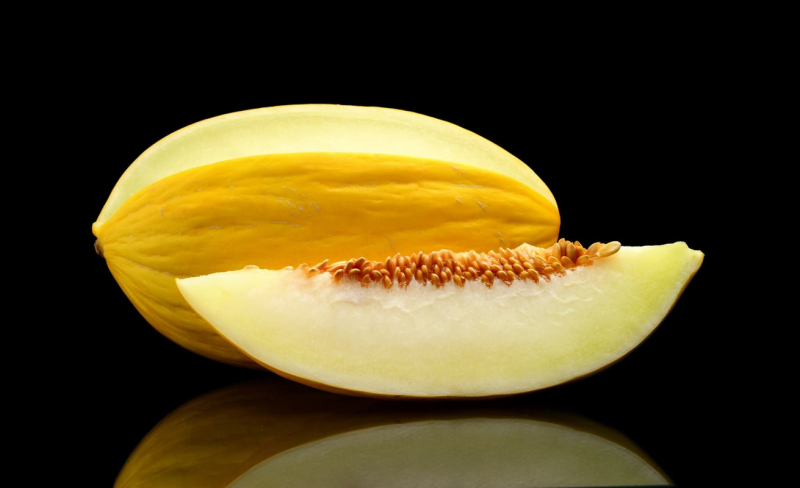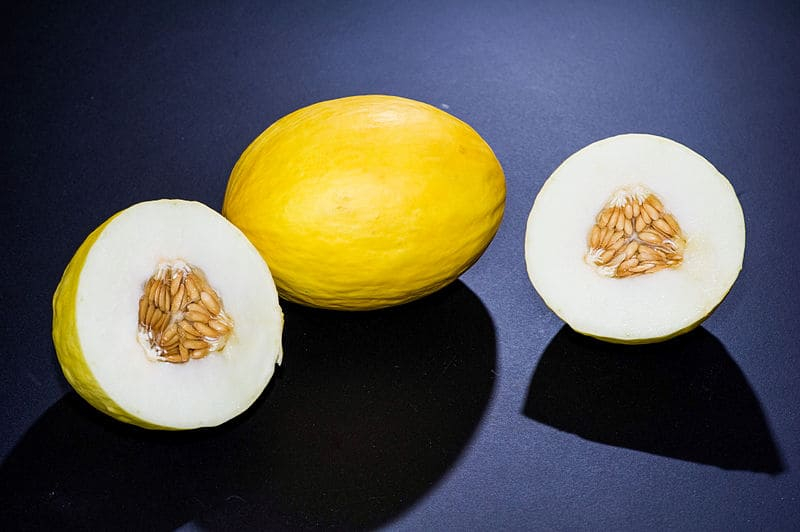Canary Melon
Canary melons, also known as Cucumis melo in the botanical world, are a sweet kind of muskmelon that are members of the Cucurbitaceae family. The specialty melons are grown on three-meter-long vines, and they typically take 80 to 90 days for the fruits to reach maturity. Canary melons are a type of winter melon and are highly prized for their juicy, sweet flesh. Because of their strong rind, canary melons can be preserved for a long time and delivered to markets all over the world. Canary mels are also named after the canary bird, as the rind matches the bird’s signature, bright yellow coloring.
It is a small to medium-sized fruit with an average diameter of 10 to 13 cm. They resemble an American football thanks to their elongated, oval shape and little tapering on both ends. The rind of the melon is hard, thick, semi-smooth, and occasionally covered in brown spots. The flesh is delicious, delicate, tender, and succulent behind the rind and ranges in color from ivory to white with faint green undertones. Canary melons are an excellent source of fiber to regulate the digestive tract and the antioxidant vitamin C to strengthen the immune system, reduce inflammation, and protect the cells against environmental toxins known as free radicals. The melons are also a good source of vitamin A to maintain healthy organ functioning, potassium to balance fluid levels within the body, and contain lower amounts of manganese, iron, calcium, and phosphorus.












